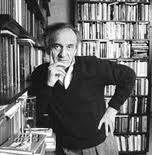"Elie Wiesel Was Not in Buchenwald" Made Simple
by Carolyn Yeager
copyright 2013 carolyn yeager

“In literature, Rebbe, certain things are true though they didn’t happen, while others are not, even if they did.” -Elie Wiesel speaking of his book Night, from his Memoir: All Rivers Run to the Sea
For the skeptics and know-nothings who have written in suggesting Eli Wiesel was not in the camps, that Night is purely fiction, you are all dead wrong. The Red Cross International Tracing Service Archives documents for Lazar Wiesel and his father prove beyond any doubt that Lazar and his father arrived from Buna to Buchenwald January 26, 1945, that his father soon died a few days later. -Kenneth Waltzer in a comment at Scrapbookpages Blog, March 6, 2010.
The story that Michigan State University history professor Kenneth Waltzer has told us about Elie Wiesel in Buchenwald, based on Wiesel’s book Night, is not true.1
Elie Wiesel was not incarcerated at Buchenwald.
He was not liberated from Buchenwald.
He was not a victim of the “Nazis” there.
How do we know that?
Well, how do we know that Elie Wiesel was at Buchenwald?
1. We have a numerical file (registration) card for Lazar Wiesel from Sighet, born 1913.
2. We have a questionaire (Fragebogen) made out for and signed by a Lázár Wiesel, a 16-year-old Jew from Sighet.
3. We have a transport list from Buchenwald to France with the name Lazar Wiesel, born Oct. 4, 1928.
4. We see a picture of him in the famous photograph taken in Barracks #56 on April 16, 1945.
5. We have a death report for Abraham Viezel on 2-2-1945, in Block 57.
6. We have a transport list from Auschwitz to Buchenwald with the names Lazar Wiesel, #123565, born 4 September 1913 and Abram Viezel, #123488, born 10 October 1900.
7. We have a photo of the “rescued children” marching out of the Buchenwald main gate on April 27, 1945.
8. We have the book Night, in which he says he was.
The above list is ordered according to its perceived importance in proving Wiesel was at Buchenwald, so I’ll start from the bottom (least important) in showing that they don’t prove any such thing.
Please continue reading at Elie Wiesel Cons The World
Category
Elie Wiesel, Holocaust Revisionism- 1240 reads









